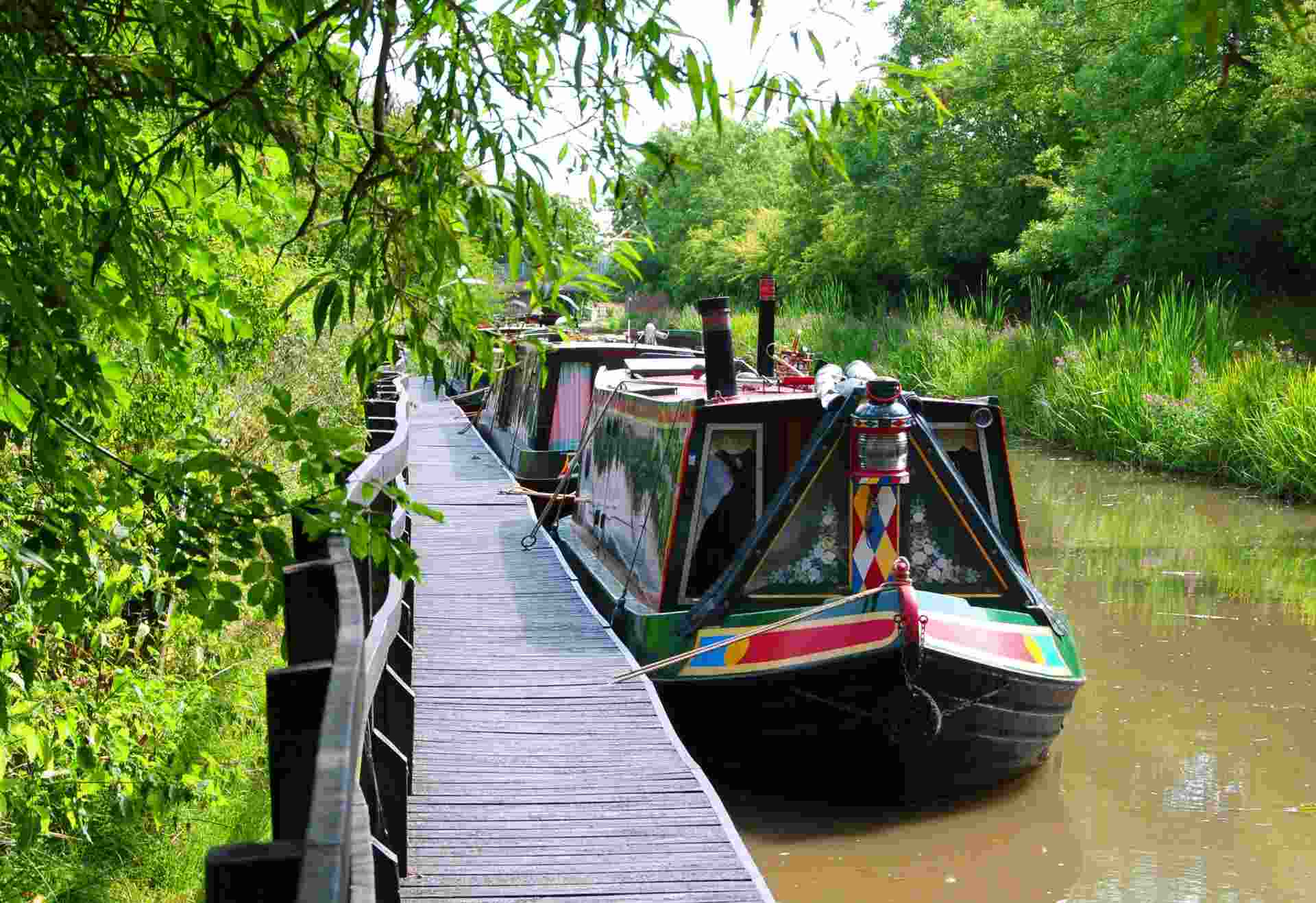Is The Future of Boating Going To Be Electric-powered Engines?
Posted by:GJW Direct | Aug 19, 2021
Recent years have seen a rise in the number of hybrid diesel-electric narrowboats out on the water, with a number of boaters looking for an alternative to diesel engines. We’ve already started to make headway, with thought-leaders such as Lynch Motors bringing us electric motors, but is the future looking greener for carbon emissions by choosing fully electric vessels?
What is the performance of an electric engine like?
In order to power a narrowboat engine, you’ll need 2-3 kilowatts of power which isn’t much more energy than powering a kettle. Similarly, the amount of battery power you would need alongside this could be supplemented by solar panels placed on top of the roof of your vessel. High speeds ultimately increase energy consumption, meaning a narrowboat that travels on average at 3 miles per hour can cover more ground with an electric engine than a boat that typically moves faster, like a motor yacht.
Solar panels are an effective way of recharging your boat’s battery, meaning you can save on your narrowboat running costs with an alternative to regular diesel fuel. Solar panels not only use sunlight and convert that into an energy source, but on cloudy days they’re able to absorb different wavelengths that pass through clouds.
It should be noted solar panels won’t work as effectively during cloudy days; you will still receive some charge however it will be at a reduced rate compared to a sunny day.
Benefits of electric engines
For a regular combustion engine, regular maintenance is required to ensure everything is running smoothly and there are no leaks or signs of wear and tear. For an electric engine or motor, regular maintenance isn’t required as there is only one moving part and all you need is electricity as an energy source. This can save you costly fees for regular services.
Ecologically speaking, opting for an electric-powered boat means zero contaminates are leaked into the canals, rivers or oceans. Oil spills are known to affect wildlife and constant exposure to this means they’re likely to suffer from reduced growth, enlarged livers, heart defects and reproduction impairments.
Electric motors are considerably quieter than a regular diesel engine and allow for a peaceful journey, they also emit no fumes and therefore cruising the UK waterways means no wildlife is disturbed or polluted.
Alternatives to diesel-fueled engines
Whilst the adoption of electric-powered narrowboats might still be some years away, there are ways in which you can modify your current vessel to help combat carbon emissions. Many narrowboat owners have found alternative solutions to becoming more ecologically friendly, whilst still ensuring they’re receiving the best performance possible from their vessel.
A common trend that has arisen recently is opting for a Hydrogenated Vegetable Oil (HVO) renewable fuel source. HVO is derived from used cooking oil and is treated with hydrogen to create a synthetic, renewable and pure clean diesel. This significantly reduces carbon emissions and is an all-around greener alternative energy source for boaters. But does this require a lot of modifications to your current vessel? The answer’s no. You can very easily convert your classic diesel engine into a renewably fueled engine with some small modifications to the spark plugs and internal programming. This will allow you to utilise your current engine and change your boat to a greener system with very little expense.
Whilst opting for HVO renewable fuel is better for the environment, this does mean vegetable oil harvested for the production of food will decrease and could affect the economy. However, adopting HVO in the short term allows you to stop polluting the UK waterways, stop causing damage to the local wildlife, reduce your carbon footprints, all the whilst getting yourself into a position where you can adopt a fully electric system in the near future.
Another option for those who would currently struggle to afford a new vessel is by combining your diesel engine with an electric motor that is powered by solar panels. This means you can cruise the rivers and canals for hours purely from your solar-powered electric motor. If you need to increase your speed or your journey is longer than the battery amount allows for, you can switch to your regular diesel engine whilst your battery recharges.
This means you’ll receive the best of both worlds and at least half of your voyages will significantly reduce your carbon footprint with immediate effect.
Things to be aware of...
As we start to think more ecologically, it’s important to be aware of the risks surrounding modifying your vessel to an electric system. You want to make sure your boat operates at less than 50 volts as anything higher than that near canal water can significantly increase the risks of electrocution. Recent years have seen a law that has been passed to ensure your vessel complies with The Low Voltage Directive.
Similarly, it’s important to note that your boat batteries need to be sealed at all times when out on the water to prevent corrosion and the risk of electrical damage.
Let’s put an electric engine to the test…
Follow the journey of Cruising The Cut who earlier this year was a spectator to Ortomarine’s diesel vs. electric engine testing.
Header Image Source: Chris Shervey - (CC BY 2.0)
Topics - GJW Direct Narrowboat Electric Engines
Spotlight on Parker Adams
Feb 1, 2024Who is Parker Adams?
Parker Adams is an award-...
Topics- GJW Direct, Partners
Canal Boat Insurance: Key Features of a GJW Direct policy
Jan 16, 2023Enjoy your precious time out on the water, leisurely cruising, or permanently living. Canal boats...
Topics- GJW Direct, Narrowboat, Insurance
Cowes Classics Week
Jul 26, 2022“If I want to enjoy racing, do I have to spend a lot of money on a new boat and join an arms race...
Topics- Events, GJW Direct, Yacht, Boat Shows, Classic Boats, South Coast, Sailing Yacht, Yacht Racing, yacht clubs, uk, Sponsorship

.png)



